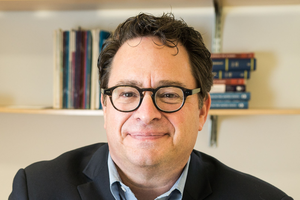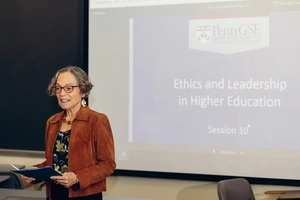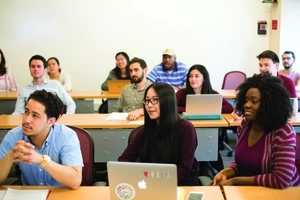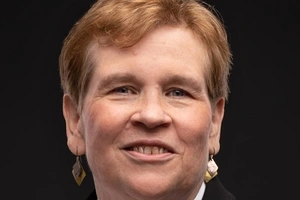Faculty Expert
As universities founded before the Civil War grapple with their historical ties to slavery, Penn GSE Associate Professor Amalia Daché is leading efforts to study reparations and higher education through students’ eyes. Daché is a co-leader of Project SHARPE, a research initiative probing slavery history and reparations in post-secondary education through qualitative and quantitative work.
Short for “Slavery Histories and Reparations in Postsecondary Education,” the project is part of Daché’s work researching educational geographies of opportunity, the impact of slavery, and social activism. Daché and her project co-leader, Juan Carlos Garibay, founded Project SHARPE to “look at work of reparations and what campuses founded before the Civil War are doing to repair,” Daché explained. The initiative has received funding from the Spencer Foundation and the Russell Family Foundation.
Project SHARPE is currently surveying students of African descent from 11 universities over four years about their experiences on campus. The team, which includes graduate and doctoral students, has also built a database of institutions nationwide documenting schools’ work on reparations based on published institutional website content.
Typically, reparations are a means to make amends for past wrongdoings and frequently involve financial payments. In the context of higher education, Daché said reparations are focused on creating and expanding knowledge, and sharing information on cultural, economic, and social ways a school is attempting to repair its past with intentional campus initiatives.
Some schools founded before the Civil War have direct or indirect connections to slavery, including donors and founders who enslaved people and scientific racism. These schools may address reparation by creating scholarships for students of color, formal apologies for any historical connection to slavery, a commitment to hiring faculty to study those connections, resources for confronting those ties, and a commitment to avoid any future institutional involvement with slavery.
At Penn, students and faculty have traced the university’s connections to slavery. The Penn & Slavery Project, founded in 2017 by a group of undergraduates, documents the university’s ties to slavery and scientific racism. Their work includes an augmented reality app that tours six stops on campus and details Penn’s historical connections to slavery, research, and writings.
Additionally, in spring 2023, the university joined the Universities Studying Slavery (USS), an international group of more than 100 schools that share best practices and study their connections to slavery and racial injustice. Penn has committed to hosting a future USS conference as a new member.
While its work is committed to similar ideals, Project SHARPE operates separately. For the first step, researchers asked about 500 students open-ended questions about how their college experiences were impacted by their school’s connections with slavery, including their emotional and social well-being and academics, and if their institutions addressed their concerns.
In 2024, Project SHARPE researchers will revisit five campuses and conduct focus groups for more detailed accounts. Daché expects accounts to vary widely based on a school’s location, the institutions’ efforts, and students’ African diasporic migratory backgrounds.
After surveying over a thousand students, Daché shared that “our goal is to speak with 100 students across five campuses this fall that can represent a strong model, weaker, intermediate of engaging in reparations and showing how students are doing.”
To personalize the stories and lend a multimedia element, Project SHARPE researchers plan to reconnect in four years with 20 participants who joined as first-year students. The students will share their experiences with reparations at their schools and what — if anything — had changed during their tenure.
The videos will be available on the website and social media, and Daché said it offers another entry point into the research.
“Having a video of students talking about the work will be powerful,” she noted.
Another project facet is a research index of where colleges stand in addressing reparations, including what they have done and when. The information, based on institutional website discourse data, has been posted on the Project Sharpe website. The 2024 larger survey and qualitative project extends this index to 11 specific college campuses and their students.
Daché said this directory is the first of its kind and will allow institutions and students to see how they compare to other schools, what efforts are successful, and where there is work to be done.
Both the institutional index and the longitudinal study “allows us to talk about institutional change, how institutions can change when there is effort and resources in place,” Daché noted. “Having broader conversations about reparations in higher education could change future students’ lives, faculty and staff on campus, and research. It allows for transparency in a way we haven’t had before.”
Media Inquiries
Penn GSE Communications is here to help reporters connect with the education experts they need.










